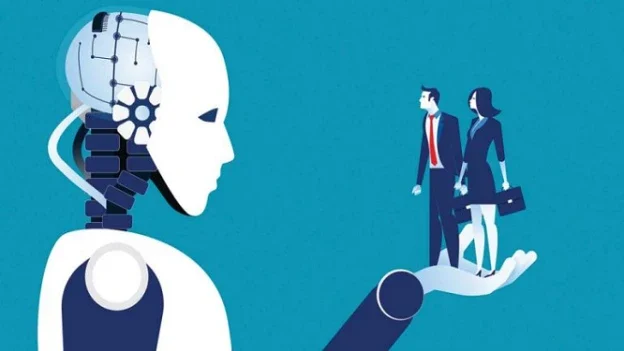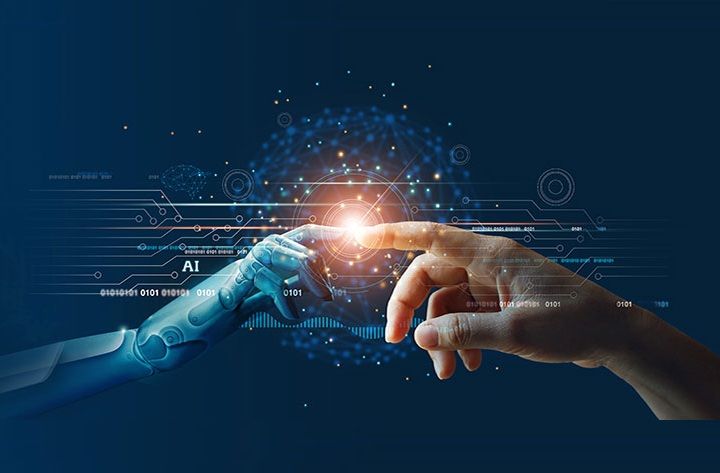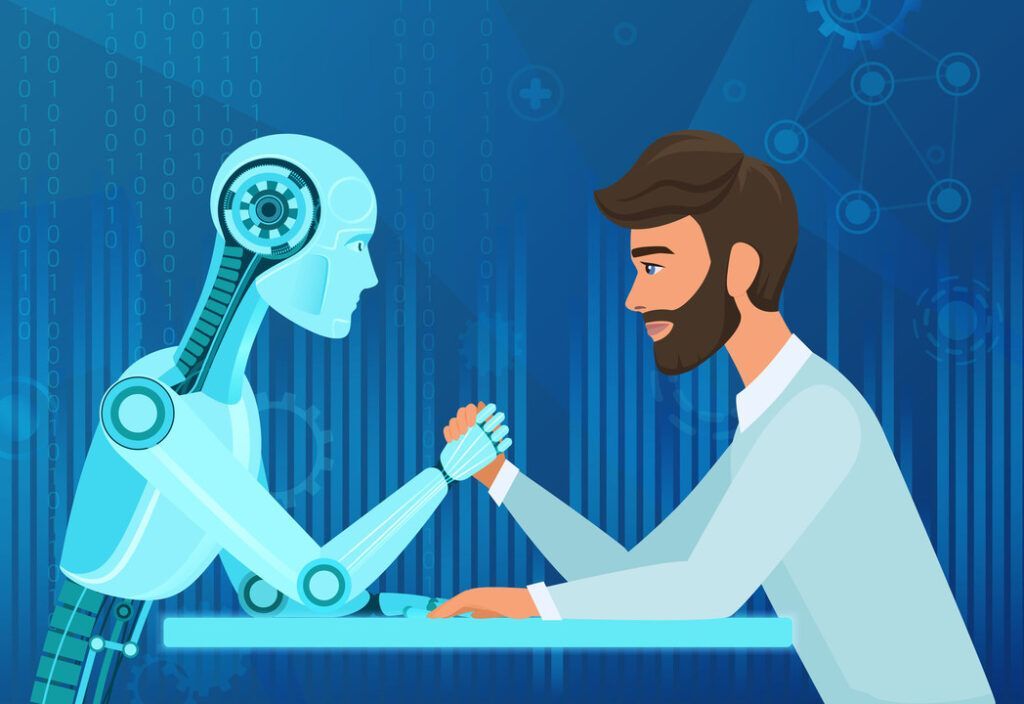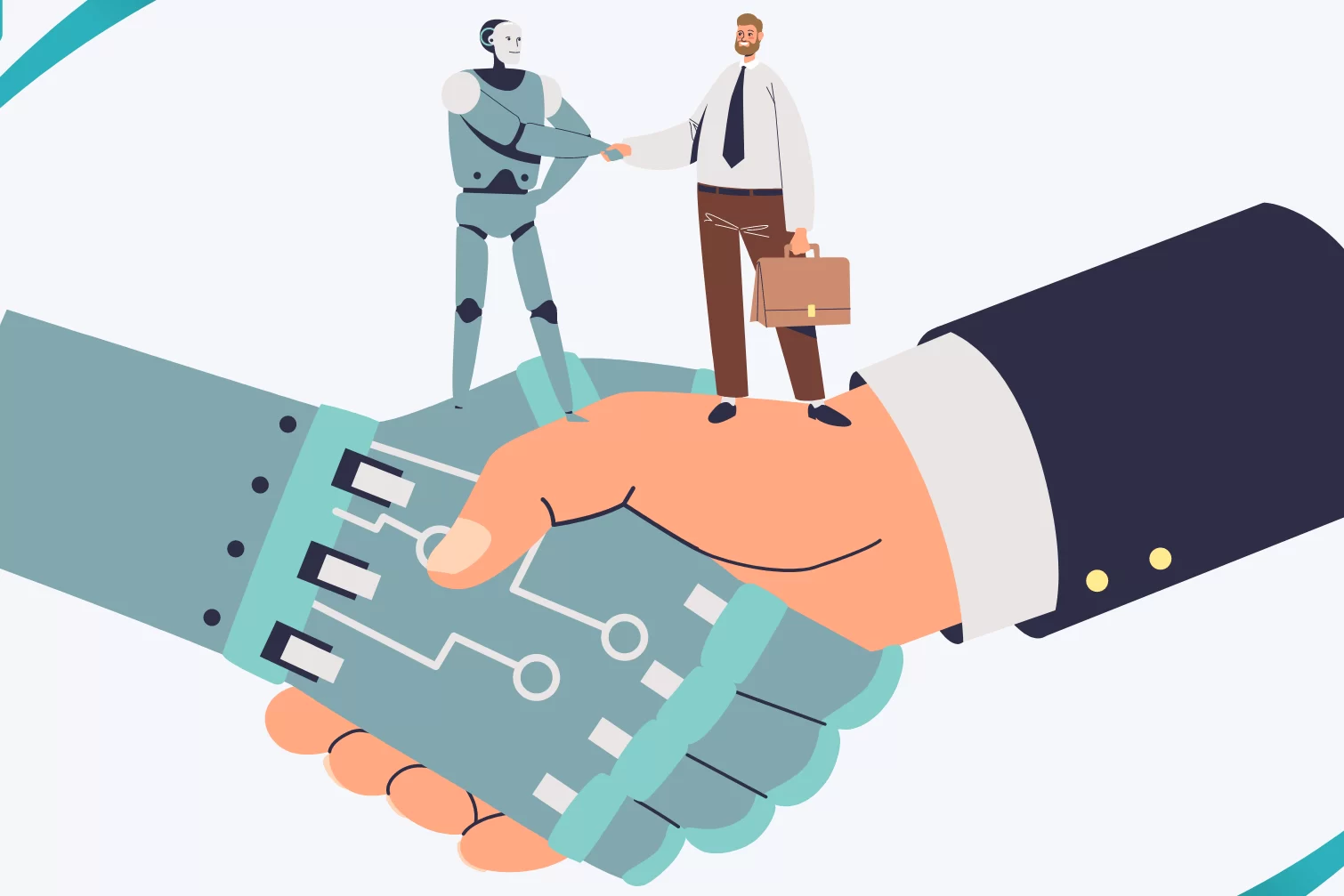
Introduction
In recent years, artificial intelligence (AI) has revolutionized various industries, including marketing, healthcare, and finance. One of the latest advancements in AI technology is the creation of AI employees, virtual entities designed to perform tasks traditionally carried out by humans. These AI employees are not only capable of completing tasks efficiently but also of learning and adapting to new situations, making them valuable assets to companies seeking to streamline operations and improve productivity.
One of the most intriguing aspects of AI employees is their ability to utilize deepfake technology. Deepfakes are synthetic media in which a person in an existing image or video is replaced with someone else’s likeness. This technology has been used in entertainment and social media, but its application in the workplace is relatively new and holds immense potential. Read our article on Deepfakes to know more about it.

The Role of Deepfakes in AI Employees
Deepfakes can be used to create realistic avatars for AI employees, enhancing their interaction with customers and colleagues. For example, a deepfake avatar could be used in customer service to provide personalized assistance, or in team meetings to represent remote employees, creating a more immersive and engaging experience.
Furthermore, deepfakes can be used to improve the natural language processing capabilities of AI employees. By analyzing speech patterns and facial expressions, deepfake technology can help AI employees better understand and respond to human emotions, making interactions more empathetic and effective.

The Rise of AI Employees: A New Era of Workforce
AI employees, powered by deepfake technology, are poised to redefine the workforce. These virtual entities can work tirelessly, handling repetitive tasks with ease and providing personalized interactions. They offer businesses the ability to scale operations rapidly and efficiently, making them invaluable in today’s fast-paced business environment. AI employees represent a paradigm shift in the way businesses operate. These virtual entities can handle tasks with speed and accuracy, improving operational efficiency. Moreover, AI employees can work 24/7, ensuring round-the-clock availability for customer service and other critical functions. By leveraging AI employees, businesses can streamline operations, reduce costs, and enhance overall productivity
Benefits of AI Employees with Deepfakes
AI employees with deepfakes offer several advantages for businesses. Firstly, they can significantly reduce costs associated with human employees, including recruitment, training, and ongoing salaries. This cost-effectiveness is especially beneficial for tasks that are repetitive or require 24/7 availability, as AI employees can work continuously without the need for breaks or overtime pay.
Additionally, AI employees can enhance customer interaction and satisfaction. Deepfake avatars can be used to create more personalized and empathetic customer service experiences. These avatars can understand and respond to customer queries in a natural and human-like manner, improving overall customer satisfaction and loyalty.
Furthermore, AI employees with deepfakes can improve efficiency and productivity. They can perform tasks quickly and accurately, reducing errors and streamlining workflows. This can lead to increased productivity and cost savings for businesses.
Scalability is another key benefit of AI employees with deepfakes. They can be easily replicated and deployed across various roles and departments, allowing businesses to scale their operations more efficiently. This scalability is particularly useful for businesses that experience fluctuations in demand or need to quickly expand their workforce.
Challenges of AI Employees with Deepfakes
Despite their benefits, AI employees with deepfakes also pose several challenges. One of the main concerns is the ethical implications of using deepfake technology. Deepfakes can be used to create false information or impersonate individuals, raising questions about trust and authenticity.
Security is another major challenge. Deepfake technology could be exploited by malicious actors to create convincing fake identities or manipulate sensitive information. This poses a significant security risk for businesses, especially if deepfake technology falls into the wrong hands.
Regulatory compliance is also a concern. Businesses using AI employees with deepfakes must adhere to regulations regarding data protection and privacy. Failure to comply with these regulations could result in legal consequences and damage to reputation.
Moreover, there is a risk of dependency on technology. Overreliance on AI employees with deepfakes could lead to job displacement and social inequality. It is important for businesses to carefully consider the impact of AI employees on their workforce and society as a whole.
Lastly, there is a risk of misuse and manipulation. Deepfakes can be used to create false narratives or manipulate public opinion, posing a threat to democracy and social stability. Businesses must be aware of these risks and take steps to mitigate them when using AI employees with deepfakes.

Ethical Considerations and Security Risks
While deepfake technology offers exciting possibilities, it also raises ethical concerns. The potential for misuse, such as creating fake news or deceptive content, is a significant challenge. It’s essential for businesses to approach the use of deepfakes in AI employees with caution and responsibility. By implementing strict guidelines and oversight, businesses can mitigate these risks and ensure the ethical use of AI employees.The adoption of AI employees raises important ethical considerations and security risks. Ensuring the responsible use of deepfake technology is essential to maintaining trust and credibility. Businesses must implement robust security measures to protect against potential misuse of AI employees.

Presenting Critical Future’s Services in AI Employees with Deepfakes
As a leading provider of AI solutions, Critical Future can capitalize on the rise of AI employees with deepfakes by offering specialized services tailored to this emerging field. Here are some ways Critical Future can present its services:
- Deepfake Avatar Development: Critical Future can develop high-quality deepfake avatars for AI employees, ensuring they are realistic and engaging. These avatars can be customized to fit specific roles and industries, enhancing the overall user experience.
- Natural Language Processing Enhancement: Critical Future can utilize deepfake technology to improve the natural language processing capabilities of AI employees, enabling them to better understand and respond to human interactions.
- Security and Ethical Guidelines: Critical Future can provide guidance and solutions to ensure the ethical use of deepfake technology, helping companies mitigate risks associated with misuse.
- Training and Support: Critical Future can offer training programs and ongoing support to help companies effectively implement and manage AI employees with deepfakes.
Future Outlook: The Endless Possibilities of AI Employees
As AI technology continues to advance, the possibilities for AI employees are endless. Businesses that embrace this technology can gain a significant competitive advantage and drive innovation. By partnering with Critical Future, businesses can unlock the full potential of AI employees and stay ahead in a rapidly evolving business landscape.
Conclusion
The integration of deepfake technology into AI employees represents a significant advancement in the field of artificial intelligence. While it offers numerous benefits, companies must approach this technology with caution and implement appropriate safeguards to prevent misuse. Critical Future is well-positioned to lead the way in this emerging field, offering specialized services to help companies harness the full potential of AI employees with deepfakes.
